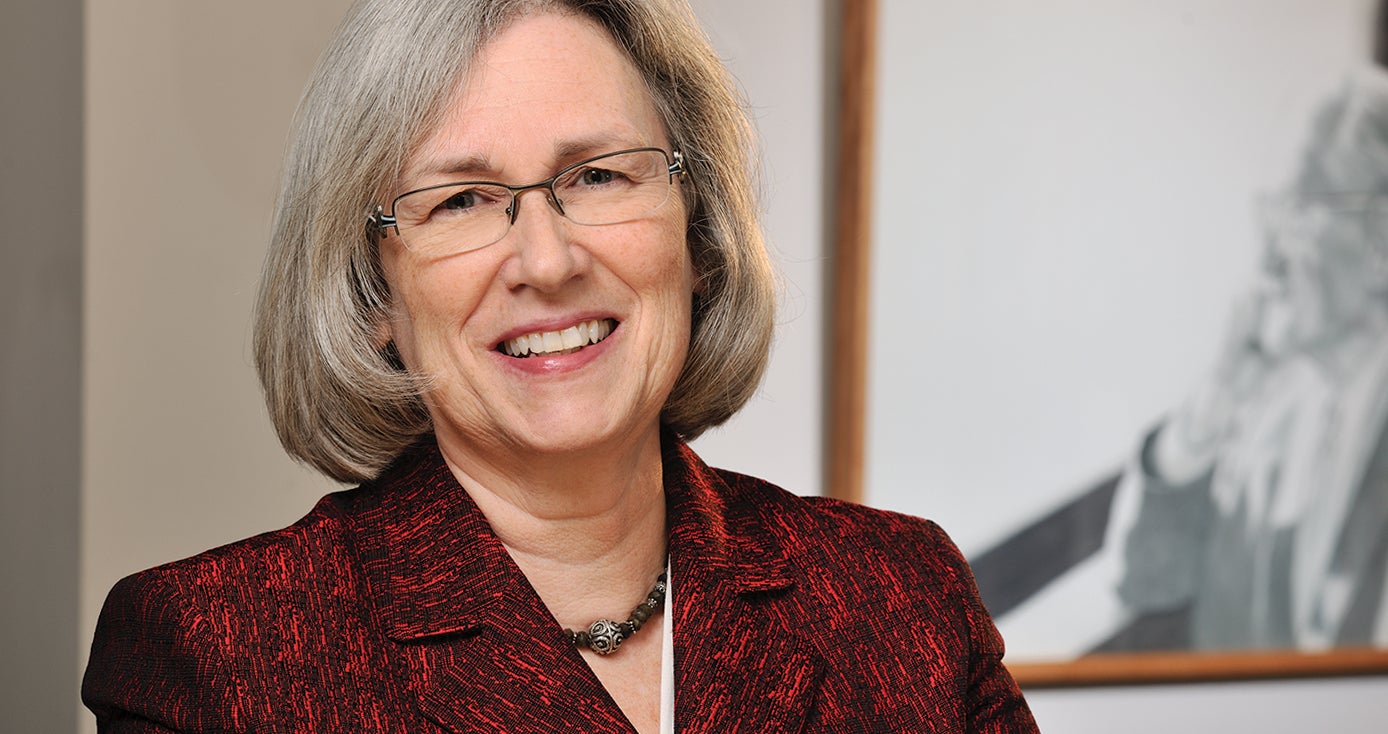
Subscribe to Pittwire Today
Get the most interesting and important stories from the University of Pittsburgh.Aging Institute Leadership Marches On
This story, written by Kristin Bundy, first appeared in the fall 2018 issue of Pitt Med magazine.
Baby boomers have long been known as one of the largest generations, and now they are living longer and healthier than any generation before, says Anne Newman (MED ’82,’85,’87), the newly appointed clinical director of the Aging Institute of UPMC and the University of Pittsburgh. She is a boomer herself.
“We’re going through an aging revolution,” says Newman. (Apropos for the generation known for anti-war protests and civil rights rallies.)
“The 65-year-old today is a healthier person than a 65-year-old was 30 years ago,” Newman explains. Could it be because of lifestyle changes? The availability of medications? Better care? “Big picture — we’re looking at people who are older now and questioning if there’s a different phenomenon than there was before, and what it means to clinical practice.”
Historically, aging studies focused on understanding risk factors for premature death, physical disability and dementia, which are really important, Newman says. But now there’s a shift toward understanding the flip side — the absence of disease — and how older people can stay healthy for as long as possible.
Newman, Distinguished Professor of Epidemiology and professor of medicine, as well as clinical and translational science, has been studying the aging process for more than 30 years at Pitt. Her interest in the elderly population began when she was a student in the School of Medicine. Learning how all of the bodily systems interacted in the sickest, most complicated cases challenged and intrigued her. Geriatrics is “internal medicine — plus,” she says.
As principal investigator on a myriad of aging studies, Newman has tracked thousands of participants for up to three decades, yielding an extensive body of research. In 2014, she published a landmark study demonstrating what many physicians had previously only assumed: Walking is indeed protective against the loss of mobility in the elderly. Last year she reported in the Journal of the American Medical Association on rates of disability and pharmaceutical use in 90-year-olds who had been followed since they were in their mid-60s. This year’s publication highlights include a paper identifying cardiovascular biomarkers and physiologic indicators associated with mortality — information that could be used to develop new drugs or other therapies to “alter the trajectory of aging.”
Through her clinical directorship at the Aging Institute — a newly created position — she is working alongside institute director Toren Finkel, a basic scientist, to guide promising animal research toward clinical studies. As she and Finkel move forward, they’re “drawing on the collective wisdom of many researchers here at Pitt,” she says. That wisdom pertains to prevention, social environments, rehabilitation science, nursing and basic science, notes Newman. “All of these aspects are important to the Aging Institute to address what it means to be healthy as you age.”
Ultimately, they hope to unearth what Newman calls “the holy grail of biomarkers” — the ability to measure substances in the blood to determine how old somebody is. “We’ve not had good ways of measuring that besides knowing someone’s birthday,” she notes.
Newman says her own research has influenced how she approaches aging, motivating her to make regular trips to the gym. She loathes the anti-aging industry that is so formidable in the United States. “I think it’s really important not to think of aging as a war to be waged but rather a process to be shepherded.”



